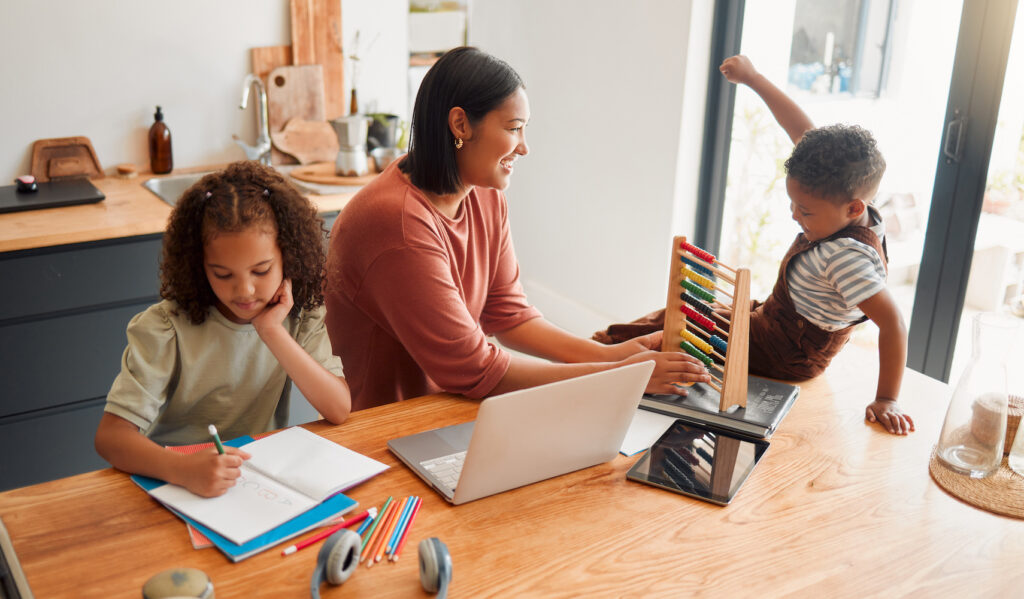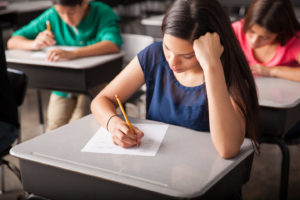Op-ed: Homeschool works better for the ‘common good’ than public school
Critics of homeschooling frequently complain it’s too individualistic and hurts public schools, which they see as a “common good.”
“Let’s not forget the reason public schools were…

Critics of homeschooling frequently complain it’s too individualistic and hurts public schools, which they see as a “common good.”
“Let’s not forget the reason public schools were funded in the first place: as social equalizers where communities can come together for the benefit of their children,” opines Kathryn Jezer-Morton for the Cut, a division of New York and Vox Media.
“When enough people pull their children out of public school, at a certain point, the public schools start to lose out. One of the moral consequences of the individualistic nature of this country is that no one has to shoulder any responsibility for their personal choices.”
However, this shows a fundamental misunderstanding of homeschooling’s nature, even though Jezer-Morton argues she has “nothing against homeschooling per se.”
Just ask Abilene Christian University professor Myles Werntz, who jumpstarted his homeschool journey during the COVID-19 pandemic. Four years later, his family is still homeschooling.
“We can hold with the apostle Paul that it’s good to live at peace with all people as far as we are able (Rom. 12:18), and with Jeremiah that we should seek the welfare of the city (29:7),” he writes for Christianity Today.
“But that doesn’t require us to pursue these ends only through the means provided by the state. It doesn’t mean people of good will can’t disagree about the form of the common good while agreeing on its value.”
Werntz concludes with a thought-provoking question: “What if, as my family has found, it is possible to homeschool for the common good?”
‘Vaguely monomaniacal’ or parentally responsible?
In all Jezer-Morton’s emotional handwringing over homeschooling, she fails to realize how this alternative form of education is the ultimate responsibility inducer.
When parents choose to bear the entire weight and burden of their child’s education, it’s in their best interests to ensure they’re doing it well.
However, she views homeschooling as “vaguely monomaniacal” because it means aspiring to be “your child’s parent and teacher.”
Has she forgotten how parents are, and always have been, their child’s first teachers?
Parents typically teach their children to crawl, speak, walk and go to the potty. We remember these parental rites with varying degrees of fondness (or relief they’re over!), but there was nothing monomaniacal about it.
Does this change as children grow older?
Jezer-Morton thinks so, describing teaching well as “an elite skill.” She bemoans how homeschooling “implies that anyone can teach, that all you need is energy and basic literacy.”
Indeed. All the research to date has shown how homeschooling’s extraordinary success extends to any parent regardless of educational background (Thomas Edison’s mom being a famous example).
“Homeschool students score above average on achievement tests regardless of their parents’ level of formal education or their family’s household income,” explains the National Home Education Research Institute (NHERI) on its website.
“Whether homeschool parents were ever certified teachers is not notably related to their children’s academic achievement.”
If we can accomplish basic literacy for all students, we’re well on our way to creating an educated populace. However, public schools are failing even this minimal requirement.
Nationwide, 34% of all children aren’t reading at a basic level, defined as “partial mastery of fundamental skills,” explains Dr. David Hurford, the executive director of READing at Pittsburg State University.
This has significant repercussions in adulthood: “There are approximately 93 million adults who cannot read well enough to take their prescription medication.”
Even if we were to accept “teaching well” as an elite skill – which still doesn’t explain how public-schooling’s dismal outcomes are teaching well – homeschoolers can take outside courses, find certified teachers, and enhance their educational experiences with third-party support.
In other words, teaching well isn’t some exclusive monopoly found only in public-school classrooms.
‘Children don’t belong to the state’
Additionally, Jezer-Morton argues the homeschool boom is “steeped” in a desire “to control what children are exposed to.”
However much we may like to think otherwise, someone ultimately will control what our children are exposed to – either parents, or the state.
Which has the U.S. historically recognized as controlling children’s education?
The answer may surprise you: parents.
Zan Tyler, one of the early homeschool pioneers in South Carolina, quotes this ruling from the U.S. Supreme Court in Pierce vs. Society of Sisters, 1925:
“The fundamental theory of liberty upon which all governments in this union repose excludes any general power of the state to standardize his children by forcing them to accept instruction from public teachers only. The child is not the mere creature of the state. Those who nurture him and direct his destiny have the right, coupled with the high duty, to recognize and prepare him for additional obligations.”
Tyler, herself a reluctant homeschooler, pinpoints the problem with Jezer-Morton’s unspoken assumption.
Contemporary culture has transferred primary educational obligations from parents to the government, which was never legally authorized to handle such an undertaking.
“Nobody knows anymore that children don’t belong to the state,” she explains in an interview for the Schoolhouse Rocked documentary. “When you have to tell an audience that the child is not the mere creature of the state, and that is news to them, we are in trouble as a culture.”
The real story behind ‘social capital’
Now we understand why the U.S. has historically recognized parents, not government, as children’s primary educators, we can look more closely at another of Jezer-Morton’s charges: the erosion of America’s “social capital.”
Drawing from a recent documentary of political scientist Robert Putnam, Jezer-Morton defines social capital as “the idea that human relationships have value.”
“Putnam’s basic argument is that when people belong to clubs and groups – of any kind – civil society functions better,” she explains, noting how this leads to increasing social trust and cohesion. “Putnam found that toward the end of the 20th century, club membership was plummeting, and so were many measures of social cohesion.”
Jezer-Morton attacks homeschooling as “a move away from the inconvenient chaos of contemporary life and the fraying net of social capital that holds us all together.”
Instead of eroding America’s social capital, however, homeschooling builds it up in ways Jezer-Morton acknowledges – perhaps even without realizing it.
Earlier generations of homeschoolers formed clubs and groups related to homeschool freedoms, many of which still exist and thrive today. The Home School Legal Defense Association (HSLDA) is a great example.
Additionally, more than 40 years of research confirms homeschoolers have higher rates of civic engagement and community participation than their public-school peers.
In 87% of peer-reviewed studies, homeschool students perform “statistically significantly better” than their peers in social, emotional and psychological development, the institute concludes.
This includes factors such as peer interaction, self-esteem, and leadership skills – all things public-school enthusiasts tend to associate only with traditional classrooms.
“Homeschool students are regularly engaged in social and educational activities outside their homes and with people other than their nuclear-family members,” the institute notes. “They are commonly involved in activities such as field trips, scouting, 4-H, political drives, church ministry, sports teams, and community volunteer work.”
Overall, homeschool graduates vote and attend public meetings more frequently, participate more in community service, and show more political tolerance than public-school graduates, according to the research.
If homeschooling creates an environment where “no one has to shoulder any responsibility for their personal choices,” as Jezer-Morton charges, how come its graduates are such responsible citizens with hearts for helping others?
Saying ‘yes’ to the common good of homeschooling
By characterizing public schools as a common good, Jezer-Morton and others tend to conflate any alternatives as somehow morally deficient. If you don’t support public schools financially by sending your kids to them, you’re not supporting the common good.
However, Werntz points out the discrepancy with this thinking: “Money is not the only measure, and not all of what public schools offer as common is necessarily good.”
For these reasons, individual choices to homeschool can benefit the entire community even more effectively than public schools, according to Werntz.
“Is it possible that in saying no to the concrete, flawed version of a public good, we may say yes to the common good it aims to serve?” he asks.
Absolutely. Years of homeschool history have proven how those with individualistic mindsets have produced their own “social equalizers” benefiting our nation’s children – by educating them at home.
In fact, homeschooling may help restore our nation’s “fraying net of social capital” in even greater measures than public schools ever did.



